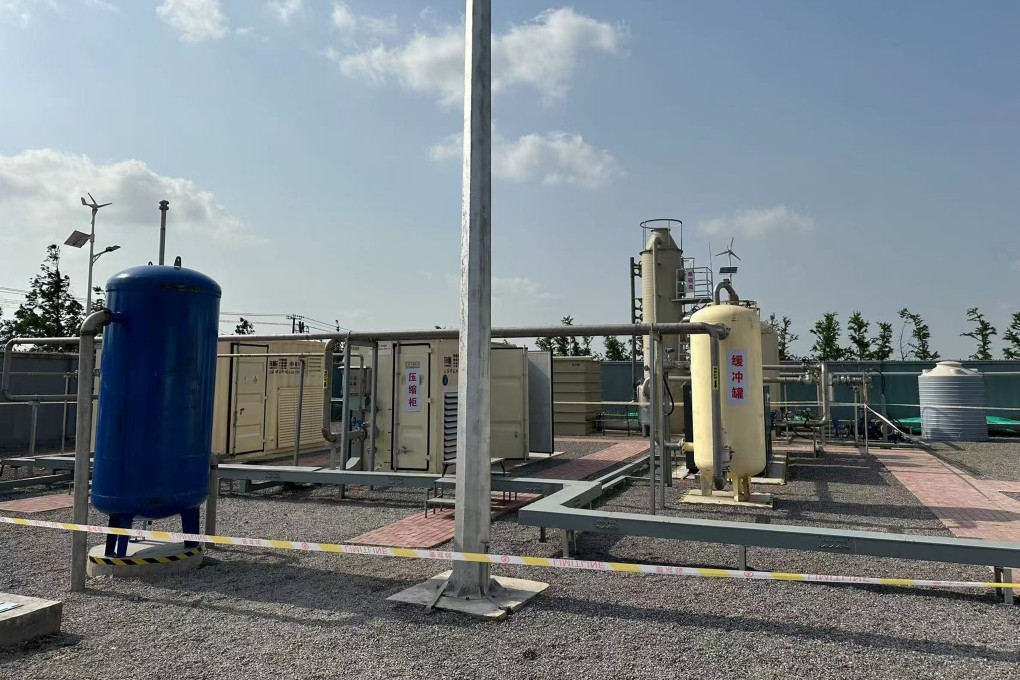Advertisement
Climate change: Shanghai’s main gas supplier is building facilities to turn kitchen waste into green methanol to fuel ships
- Facilities capable of producing up to 100,000 tonnes of green methanol from leftover food will be ready by end-2025, says Shenergy vice-president
- Traditional disposal methods like burying or incineration are less effective when food waste is included and cause pollution
Reading Time:2 minutes
Why you can trust SCMP
1

Daniel Renin Shanghai
Shenergy Group, the major natural gas supplier in Shanghai, is building facilities to turn mountains of kitchen food waste into green methanol, an alternative fuel for the carbon-intensive shipping industry as mainland China’s economic powerhouse strives to reduce pollution and enhance industrial efficiency.
Facilities that are capable of producing 70,000 to 100,000 tonnes of green methanol from leftover food will be ready by the end of 2025, Shi Pingyang, vice-president of Shenergy told reporters during a media briefing on Wednesday.
“We want to collect more kitchen waste to promote the development of the technique,” he said. “In a densely populated city like Shanghai, a huge amount of kitchen waste can be better utilised to pursue a greener local economy.”
Advertisement
Green methanol is viewed as a low-carbon liquid fuel that can be widely used in maritime transport. Unlike conventional methanol, it is produced from sustainable biomass, or from carbon dioxide and hydrogen produced from renewable electricity.
Separated kitchen leftovers, also known as wet waste in mainland China, can be turned into resources such as compost or oil and methane gas for industrial use.
Shi told the Post that Shenergy, which supplies more than 10 billion cubic metres of natural gas, or 95 per cent of the city’s total, has a gargantuan natural gas infrastructure network to support the development of the new technique.
Advertisement
Advertisement
Select Voice
Select Speed
1.00x
